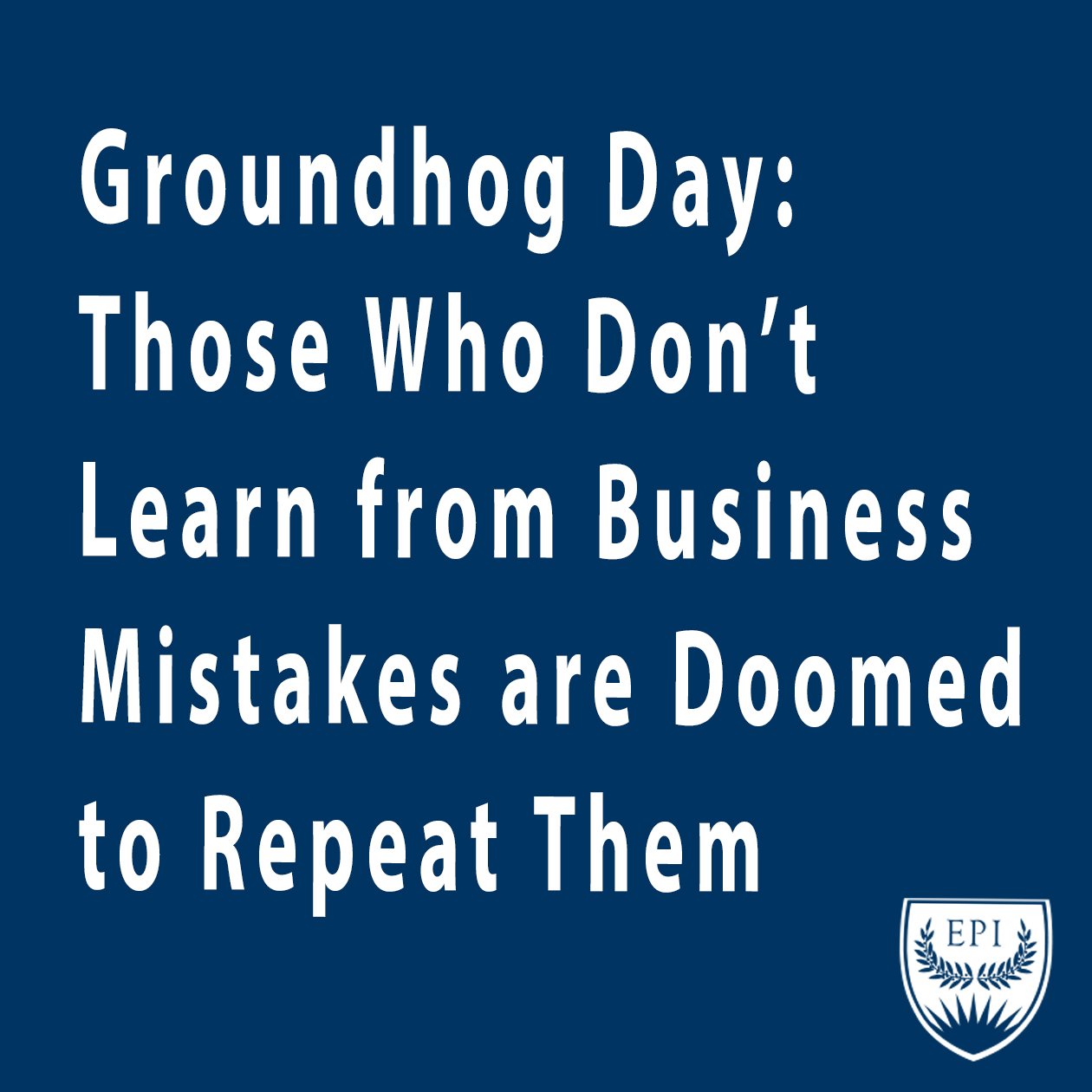
THE EXIT PLANNING BLOG
Keep up-to-date with exit planning, succession planning, industry trends, unique specialty insights, and useful content for professional advisors and business owners.
Share this
Happy Valentine’s Day… Now Let’s Talk About Divorce
by Colleen Kowalski on February 11, 2021

Can you feel it? Love is in the air. Teddy Bear and chocolate sales skyrocket, florists have bandaged hands from how many red roses they have de-thorned, and everyday items are triple the price because they have been bent into a heart shape. Valentine’s Day brings out the hopeless romantic in some and the cynic in others. Where some love a day filled with romance on February 14th, others spend the day in sweatpants and wait to buy the half-priced chocolate on the 15th. According to Wedding Wire, Valentine’s Day is the fifth most popular day to get engaged. Congratulations to all the happy couples who get engaged this Valentine’s Day! We truly hope you experience nothing but happiness! Now… time for the cynic’s view: 50% of marriages end in divorce, and divorces are messy – especially for a business owner.
According to Walking to Destiny, 50% of businesses fail because one of the Five D’s – Death, Disability, Distress, Disagreement, and you guessed it: Divorce. While divorce may not be the direct cause of your business failing, it does impact your business more than you think.
Marital Property Laws:
Marital Property is defined as “all income and assets acquired by either spouse during the marriage”. This includes money in a savings account, stocks and bonds, and other assets – like your business. Marital Property can be either separated as Community Property or through equitable distribution. Nine US states currently distribute Marital Property as Community Property. That means, that every asset is split between the two parties evenly, 50% to one party and 50% to the other. The remaining states utilize equitable distribution, and the final disbursement of assets is determined through a lengthy court process until the former couple decides what is fair.
Depending on how your assets are distributed, you may end up with less stake in your business. For example, if you were a majority share holder with 51% of the business in your name, through Community Property distribution, your ex now has 25.5% control of the business, and you have lost the majority shareholder position within your company. Someone who previously had no stake in the business, now controls more than a quarter of it. According to Business.com, “If your ex receives a substantial portion of your stock during the settlement, they could become an uninvited partner, throwing the business into chaos. Further to this, your interest has been diluted, possibly causing your status to change”. Not to mention the stress that comes from working with your ex-husband or ex-wife.
Spouse Involvement in Business:
If you and your ex are in business together, the negative impact on your business could be wide-spread. According to Forbes, “What if your spouse has held a pivotal role in the day-to-day workings of the business but decides to quit in light of the divorce? Now, others may have to pick up the slack”. Additionally, if your former spouse decides to stay on at the company, how will you manage the unavoidable tension between the two of you? Business.com says, “Suppose your spouse is currently or was ever involved in the business, especially in a senior capacity. In that case, the situation gets even more complicated, as they still have a say on the day-to-day operations. They may have received a portion of your stock, as well, increasing their position”. How will you ensure that your employees do not choose sides and negatively impact the working environment? These are the questions you must ask yourself when working with an ex-spouse, or your business could crumble from the negative disruptions.
Exiting the Business Due to Divorce:
A divorce could lead to dissolving your business. Forbes says, “if your spouse is entitled to a big cash payout for his or her share of the value of your business and you don’t have the liquidity, you may be forced to sell or close the business in order to pay your spouse. Another scenario could include a culmination of negative events: disruptions to your operations and team resulting in poor communication with customers and business partners, bad press that damages your brand reputation and discourages people from doing business with you”. It is important to have an exit plan in place in case of a divorce.
To limit the chances of your business failing because of a divorce, follow some of these tips.
Create a Pre-Nuptial or Post-Nuptial Agreement:
When you are young and in love, asking your future spouse to sign a pre-nuptial agreement does not seem like a necessity. If anything, it seems like a sure-fire way to an argument starting with, “Why would we need this? Are you planning on leaving me?” and ending with you sleeping in the doghouse. A Prenup is one of your first lines of defense in protecting your business from being split in two. Business.com says that two things to consider while drafting a prenup are whether the company should be considered as joint marital property or an individual’s property and the company’s agreed value at time of divorce and whether any appreciation of assets gets passed on. If both spouses have ownership interest in the business, Forbes suggests asking, “would one spouse buy the other out in the case of divorce, would the business be sold and the proceeds distributed or would you maintain the business partnership in spite of the dissolution of the marital partnership?”
Separate Personal and Business Finances:
Even if you are not going through a divorce, it is important to have completely separate records for your personal finances and your business finances. Separating your finances will allow for you to have accurate statements when it comes to expenses and assets. Try not to use collateral in your home to invest in your business to limit confusion in what belongs to whom during asset distribution. Additionally, if both you and your ex-spouse work in the business, make sure you are both being paid fair market salaries so there is no question about support obligations due during the divorce proceedings, i.e.: alimony and child support.
Make a Well-Organized Exit Plan:
The best way to ensure you are prepared for an eventual business exit is to create a well-organized Exit Plan. An exit plan that includes your business, personal, and financial needs will provide you with the stability you need in case of an unexpected exit from your business. Building value in your business is not only a good business strategy, but a good security net in case of a divorce. Having a plan in place, will greatly increase the profitability of your business during a sale. To best arrange an Exit Plan, work with a Certified Exit Planning Advisor (CEPA). A CEPA utilizes the Value Acceleration Methodology to ensure that both you and your business succeed.
No one wants to think about getting a divorce, especially during the “honeymoon phase” of a relationship. But failing to plan for any possible outcomes of a personal relationship can have a devastating impact on your business relationship.
Share this
- Blog (547)
- CEPA (429)
- exit planning (249)
- CEPA community (188)
- Business Owner (173)
- Exit Planning Summit (99)
- EPI Chapter Network (89)
- Value Acceleration Methodology (81)
- Exit Planning Partner Network (76)
- EPI Announcement (50)
- Content (48)
- Webinars (37)
- Excellence in Exit Planning Awards (34)
- Marketing (30)
- 2024 Exit Planning Summit (28)
- 5 Stages of Value Maturity (26)
- Books (24)
- EPI Academy (24)
- EPI Team (22)
- Exit Planning Teams (22)
- Leadership (21)
- 2023 Exit Planning Summit (20)
- family business (20)
- women in business (19)
- Intangible Capital (18)
- Exit Options (17)
- Black Friday (16)
- CPA (15)
- Walking to Destiny (15)
- Chapters (14)
- State of Owner Readiness (14)
- Chris Snider (12)
- National Accounts (12)
- Small business (12)
- charitable intent (12)
- personal planning (12)
- Financial Advisors (11)
- Season of Deals (9)
- 5 Ds (8)
- About us (8)
- Podcast (8)
- Scott Snider (8)
- Insiders Bash (7)
- Christmas (6)
- Exit Planning Content Library (6)
- Case Studies (5)
- Owner Roundtables (5)
- Three Legs of the Stool (5)
- Value Advisors (5)
- financial planning (5)
- Awards (4)
- Circle of Excellence (4)
- EPI Thought Leadership Council (4)
- Exit & Succession (4)
- Five Ds (4)
- executive training (4)
- Owners Forum (3)
- author (3)
- forbes (3)
- DriveValue (2)
- Exit Is Now Podcast (2)
- Peter Christman (2)
- Veteran (2)
- Whitepapers (2)
- Annual Exit (1)
- Business Owners Forum (1)
- SOOR (1)
- business consultants (1)
Subscribe by email
RELATED ARTICLES






